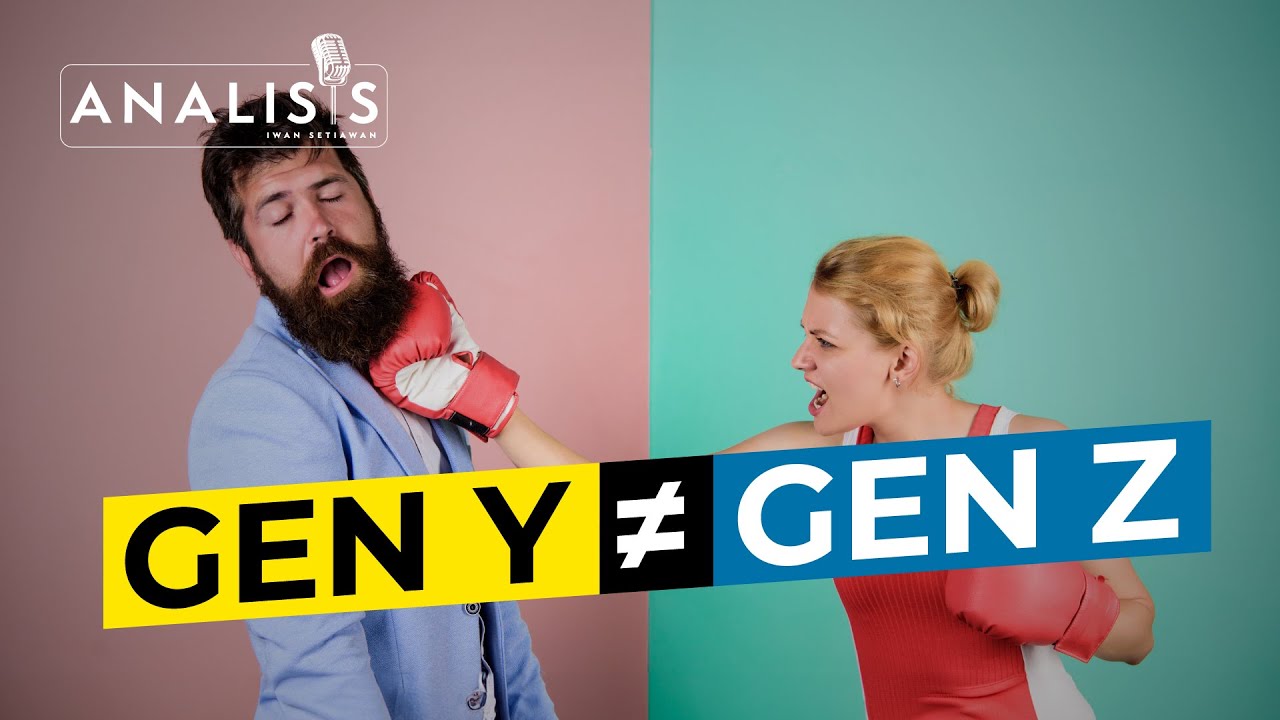Gen Z is Ending Celebrity Culture as We Know it
Summary
TLDRThe video discusses the growing disillusionment with celebrity culture, especially among Gen Z, who are prioritizing authenticity and relatability over fame. It critiques celebrities for their disconnect from societal issues and their focus on wealth, highlighting the Met Gala's juxtaposition with global crises. The speaker supports movements like Blockout 2024, which aim to hold celebrities accountable for their lack of social responsibility, and notes the rise of influencers who better align with Gen Z values.
Takeaways
- 😷 The video discusses a growing disdain for celebrity culture, particularly among Gen Z, due to perceived disconnect and out-of-touch behavior.
- 👥 The Met Gala event is highlighted as an example of celebrity detachment from real-world issues, with the IDF's attack on Gaza happening concurrently.
- 🤝 The video points out that celebrities often avoid political stances to protect brand deals and sponsorships, which some influencers are less afraid to jeopardize.
- 📺 The rise of celebrity culture is traced back to the 18th century, with the advent of public interest in artists, performers, and the media's role in promoting them.
- 📈 The script explains how the studio system and restrictive contracts in the mid-20th century limited celebrity autonomy and contributed to their commodification.
- 📉 The video mentions some infamously bad contracts in the music industry that exemplify the exploitation of artists for profit.
- 💰 It critiques celebrities for prioritizing wealth and endorsement deals over moral stances, using Kim Kardashian's relationship with Balenciaga as an example.
- 📱 The script notes the shift in celebrity dynamics due to social media, which has given rise to a new class of influencers who are seen as more relatable and authentic.
- 🌐 The changing media landscape, with multiple streaming platforms and the decline of traditional movie outings, is cited as contributing to the decline in celebrity worship.
- 💡 Gen Z values, such as authenticity, relatability, and support for causes like mental health and LGBTQ+ rights, are contrasted with the actions of many celebrities.
- 🌟 The video concludes with the assertion that Gen Z is taking action against celebrity culture through movements like Blockout 2024, demanding more from public figures.
Q & A
What is the main topic discussed in the video script?
-The main topic discussed in the video script is the shift in society's perception of celebrity culture, particularly among Generation Z, and the impact of social media on this change.
What is the 'blockout 2024' movement mentioned in the script?
-The 'blockout 2024' movement is not explicitly defined in the script, but it seems to be a social initiative or protest by which people, particularly from Generation Z, are taking action against celebrities who they believe are not standing up for issues important to them.
Why does the script mention the Met Gala, Oscars, and Super Bowl?
-The script mentions these events to illustrate the contrast between the glamorous and often oblivious world of celebrities and the real-world issues happening concurrently, such as the IDF's attacks on the Palestinian people in Gaza during the Met Gala.
What historical context is provided to explain the rise of celebrity culture?
-The script provides a historical context dating back to the 18th century, explaining how public interest shifted from rulers and conquerors to artists, performers, and eventually to the rise of theater and leisure time in the 19th century, which solidified the celebrity culture.
How did the advent of television change the celebrity landscape according to the script?
-The script suggests that the introduction of television in the 20th century led to a shift in how celebrities were consumed and managed, with big television companies using restrictive contracts and control over the press to manage the public's perception of celebrities.
What are some examples given in the script of celebrities being out of touch with societal issues?
-Examples include Kylie Jenner's obliviousness to the recession and her focus on luxury items, as well as Jennifer Lopez's attempt to appear relatable and authentic that was perceived as insincere and disconnected from reality.
Why are influencers becoming more popular than celebrities among Generation Z according to the script?
-Influencers are seen as more relatable, human, and authentic by Generation Z. They often discuss topics that are more in touch with the concerns of young people and do not come across as out of touch with societal issues.
What values does Generation Z prioritize that are affecting their view of celebrities?
-Generation Z values authenticity, relatability, and alignment with causes such as mental health support, environmental issues, and racial and gender equity. They are less interested in celebrities who do not reflect these values or engage with important societal issues.
How does the script suggest celebrities are responding to the changing attitudes of Generation Z?
-The script implies that some celebrities are scrambling to align with the values and interests of Generation Z, possibly in response to movements like 'blockout 2024', in an attempt to maintain their relevance and popularity.
What is the script's view on the future of celebrity culture?
-The script suggests that the dynamic of celebrity culture will continue to shift, with celebrities potentially losing their position of power and worship as society, especially Generation Z, places more value on authenticity, relatability, and social responsibility.
Outlines

此内容仅限付费用户访问。 请升级后访问。
立即升级Mindmap

此内容仅限付费用户访问。 请升级后访问。
立即升级Keywords

此内容仅限付费用户访问。 请升级后访问。
立即升级Highlights

此内容仅限付费用户访问。 请升级后访问。
立即升级Transcripts

此内容仅限付费用户访问。 请升级后访问。
立即升级浏览更多相关视频

Celebrities are over.... but they don't know it yet.

Marketing ke Anak Muda Sudah Geser - ANALISIS #53

Hate Your Job But Don't Want To Quit? Try Quiet Quitting instead.

3 ways to retain your Gen Z employee | Andrei Adam | TEDxMcGill

Adisatya Laksmana Pradipta_Hidup di Era FOMO: Apakah Kita Benar-Benar Hidup?_2025_TTKI-UNDIP_Kelas A

Ranveer Allahbadia, Founder, BeerBiceps - DisruptX: Challenging the Status Quo - GBS 2023
5.0 / 5 (0 votes)
